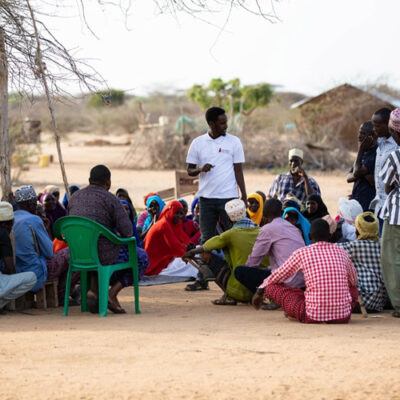Late last week, Dan Smith explained the most important impending crisis worldwide: the global competition for fresh water. The piece is a response to the Foreign Policy Center paper, “Tackling the World Water Crisis.”
Water is our planet’s most essential resource—we depend on it for our health, agriculture, industry and infrastructure. A shortage, excess and/or deficient quality can undermine welfare, impair human security and paralyze economic development.
The facts:
- 1.2 billion people around the world lack access to clean drinking water
- 2 billion don’t have adequate sanitation
- The combined population of “water-stressed countries” today is around 2.4 billion
- By 2015, about 120 countries will be water-stressed
These alarming statistics drive home the point that water is not only an environmental issue but a fundamental feature of global politics and human rights. Several of AJWS’s grantees have made water rights and water access a focus of their work, including Otros Mundos, an organization in Mexico working on the sustainable management of water, energy and forest resources through a community training school, and Green Senegal.
Smith’s article focuses mostly on the connections between water resource management, water politics, food security and social unrest in Asia, but it got me thinking about how the lack of clean water access in Haiti is taking a toll on reviving Haitian agriculture.
Despite ongoing concerns about spring rains and floods, clean and consistent water access hasn’t been a huge focus of the conversation around the Haiti Supplemental Bill or the push to include support for local Haitian food production in that bill. Many Haitian grassroots organizations, however, are making sure that access to clean water isn’t ignored.
Since the earthquake, Lambi Fund has been responding to the out-migration to rural areas by helping members of peasant groups get food and essentials for their families to re-establish their lives. In addition to providing seeds, tools and equipment for peasant groups to plant more crops to feed rural communities, the Fund is rebuilding rainwater cisterns for safe drinking water.
We mustn’t forget that funding clean water systems in Haiti is crucial for recovery and reconstruction.


